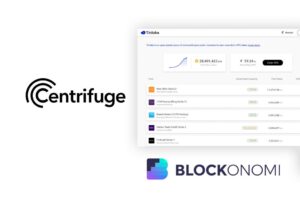
Virtual fashion has been around for a long time. Even video games a decade old had clothing options for your avatars, often costing real money rather than in-game currency. These clothes would then be useless once you were done with the game, as they had no utility or ability to get value back.
The introduction of NFTs changed this, as these clothes can now be created as NFTs that can be resold. But video game fashion isn’t alone. Designer fashion is now taking advantage of NFT capabilities and entering the metaverse.
Fashion sectors are gaining steam in the metaverse and utilizing the opportunities available. Ralph Lauren, Gucci, Balenciaga, and Nike are all brands grasping opportunities within the metaverse to maximize customer engagement and business potential.
Designers can create collections at a much lower cost and use AR and VR to apply the digital creation to a model. Digital clothing may be worn by people’s metaverse avatars and simply tried on within VR and AR environments with more ease than visiting a local brick and mortar storefront.
This much is clear: NFTs and fashion are two industries that can benefit each other greatly.
Environmental Benefits to NFT Fashion
There are a number of potential environmental benefits to NFT fashion, though some are more overstated than others. Some believe that virtual clothing will replace people’s need for physical garments over time, especially if frequently meeting virtually and not physically. This would cut down on the impact of clothing production.
However, it’s hard to imagine a world where people are content with just visually seeing something on themselves and not being able to feel it. Though haptic (sense of touch) virtual reality could change this.
The more obvious benefits to the environment with NFTs and fashion are related to augmented reality (AR). Designers can create digital samples, prototypes, or entire collections without having to physically assemble anything, pay for materials, or even a model. Instead, they can use AR to place their designs on a digital model, or customers can “try on” clothing without having to physically do so.
That last aspect could be huge for the fashion industry as a whole. Customers will no longer have to gamble on the style of a dress they can see for themselves in advance. This saves shipping costs and environmental impact on both ends, because it is far less likely a customer will need to return an item.
Mozverse Simplifies the Process for Fashion Businesses
For any fashion or clothing business looking to get into the metaverse, Mozverse can help. Businesses looking to get into Web3 and NFTs will either need to bootstrap their own knowledge and expertise or seek help elsewhere. For this, Mozverse offers end to end assistance in establishing a business’ web3 presence. Just like how Shopify provides the full suite of tools and services for ecommerce businesses, Mozverse gives businesses everything they need to enter the Web3 domain.
Mozverse simplifies the process of creating Web3 products and services by providing a Smart Contract builder and an NFT generation kit. These allow less technically-inclined businesses to experiment with the metaverse. These “no-code” tool sets for building NFTs and smart contracts drastically reduce the barrier to entry for businesses seeking to create an NFT based offering.
Businesses with more technical prowess can instead use Mozverse’s NFT API to integrate NFTs onto their existing platform. Mozverse offers a complete package. They are a Web3, marketplace, and metaverse development partner capable of building out a customized Web3 presence.
Who’s Behind Mozverse
Mozverse was co-founded by Danny Mozlin, a tech entrepreneur with his hands in a number of sectors, and Zach Hirsch, a rising social media influencer who has been featured in Forbes. Danny combines experience with AR and VR, and blockchain to fill a gap in emerging industries related to the metaverse. Zach and their team of more than 20 designers, developers, and engineers help make Mozverse come to life.
Learn more about Mozverse’s revolutionary NFT platform today.
The post Mozverse: Why NFTs & Designer Fashion Lines are a Match Made for the Metaverse appeared first on Blockonomi.





















